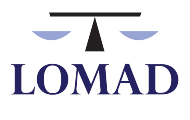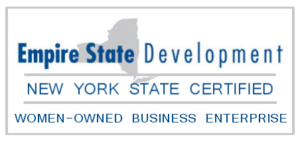Workers’ Compensation Law § 18 provides that the claimant must give written notice of an injury to his employer within 30 days of the accident. However, the statute further provides that the failure to give timely written notice may be excused by the Board if it finds that the claimant had a sufficient reason for the failure to provide timely written notice, the employer had actual knowledge of the accident or the employer was not prejudiced by the lack of timely notice. The courts have further found that the claimant has the burden of showing that the delay in notification did not prejudice the employer, particularly where the accident was unwitnessed. (Zraunig v New York Telephone Company, 32 A.D2d 686 [3rd Dept 1969]). The Court has found prejudice when the delay aggravates the injury or prevents the employer from properly investigating the claim. (Yagaloff v Lincoln Hall, 137 AD2d 955 [3rd Dept 1988]; Pierce v New York Telephone Company, 99 A.D.2d 898 [3rd Dept 1984]).
We were successful in getting the Board to reverse a finding of the WCLJ who established an untimely noticed claim. In this claim, it was undisputed that the claimant did not provide any notice of the injury to the employer within 30 days of the accident, either written or oral. We argued that the delay prevented the employer from properly investigating the claim. We provided employer testimony that the employer has a procedure for keeping closed circuit video of the specific work area for the 30-day notice period. When there is an unwitnessed accident that is not accepted, the employer testified that they do preserve and review these videos once notice is provided. The employer produced clear evidence of prejudice.
It was also undisputed that this was an unwitnessed accident. It was the claimant’s burden to demonstrate that the delay in notification did not prejudice the employer.
In an effort to shift the burden of proof claimant’s counsel made a ridiculous argument that the employer should keep all videos on file in perpetuity in case there is a late notification. Claimant’s counsel further made a circular argument that because there was no surveillance the employer could not prove that there was anything even relevant on the surveillance. (Honestly, if we knew that there would not be prejudice- that was the entire point of our argument.) The claimant essentially indicated that his own unreasonable delay should be held against the employer.
If that was not enough to get it reversed, we had diligently attempted to obtain medical records from a non-compensation provider who had first treated the claimant since we first learned of their existence. Even though the claim was established by the WCLJ, we did not give up on those records, and those records actually stated there was no accident. We alleged further prejudice because if the claimant had not delayed in reporting this accident the employer would have been able to review the records and would have been able to see that there was no accident that occurred.
The Board admitted the newly obtained evidence as the record was clear that the we had diligently and timely pursued it, and as it was clear they were very relevant. The Board found that the employer was extremely prejudiced by the late notice, and further noted that if the claim had not been untimely filed the investigation would have demonstrated that there was no accident.

